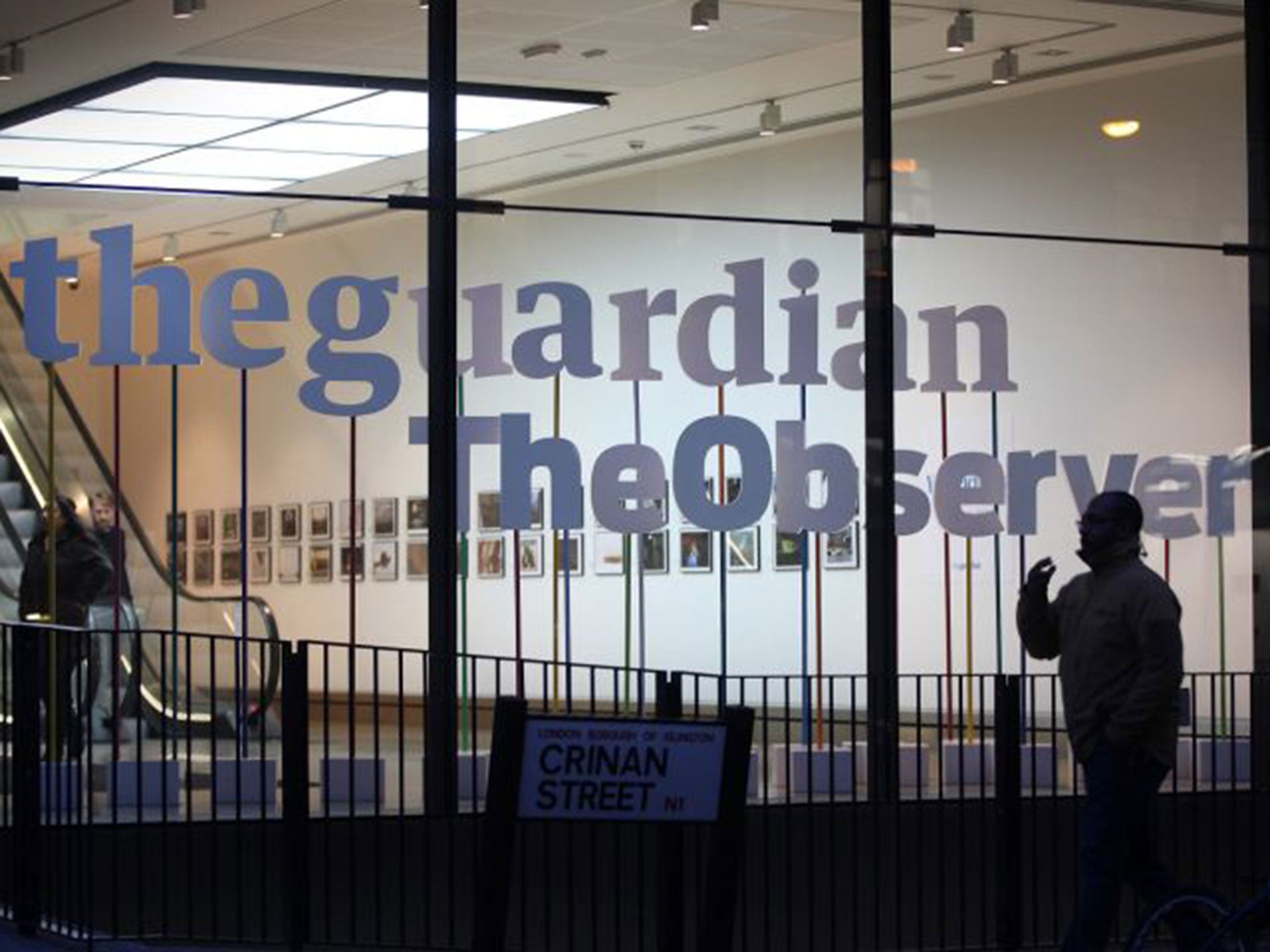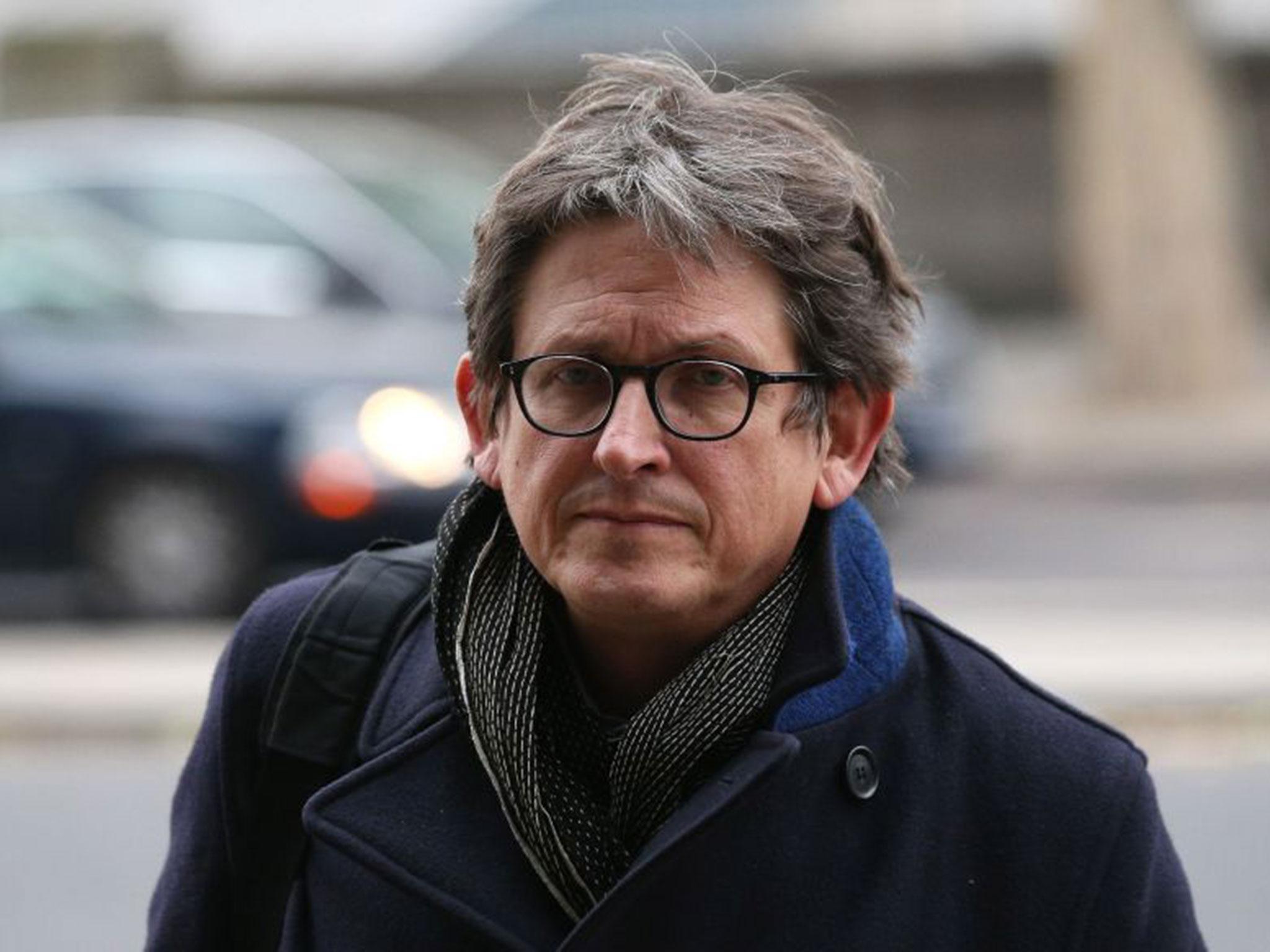The Guardian counts the costs of its global ambitions
The publisher of ‘The Guardian’ and ‘The Observer’ has spent lavishly in recent years. Now it is confronting a harsh financial reality – and nothing is safe

When the Great Northern Railway built the Midland Goods Shed at London’s King’s Cross station in 1850, it had simple expectations of a brick structure designed to house rolling stock.
More than a century and a half later, the building was a beacon of the ambition of Guardian Media Group (GMG). It was to be reinvented as “an open amphitheatre for festivals, acoustic gigs and debate”, promised Jonathan Robinson, after being appointed founding director of GMG’s “new civic space” in September 2014.
Mr Robinson, an “entrepreneur, author and anthropologist”, pledged that the giant shed would include an “intimate restaurant with a changing programme of chefs in residence, an armchair cinema, a 3D printing and fabrication lab, a rooftop garden, galleries and a dozen atmospheric spaces hosting events in everything from photojournalism to ceramics, from breaking news to works of fiction”. Except that it might not now happen; the business case is being reassessed.
Guardian News & Media (GNM), the subsidiary that publishes The Guardian and The Observer, has announced that it was planning 20 per cent cuts (amounting to £54m) from its annual £268m cost base to stem operating losses of £53m a year. There is even discussion that the group could depart its glass-fronted headquarters at Kings Place, which it entered amid great fanfare in 2008.
Some seasoned journalists at The Guardian rolled their eyes at plans for the shed, just as they did when bosses unveiled the paper’s first branded coffee shop under the Twitter-style name #GuardianCoffee in May 2013. The café was filled with tech gadgetry but was said to have the ambience of “the living room in some care home you might see in Panorama”. #GuardianCoffee is no more.
“It’s very easy to look back and say The Guardian has made mistakes,” said GMG’s chief executive, David Pemsel, as he addressed staff yesterday. It emerged that GMG had, in the past year, burned up £100m from its investment fund. Deep cuts were needed, said Mr Pemsel, to “safeguard” the paper’s future. This is not the environment which Alan Rusbridger wants to find when he returns to Kings Place in the summer. Mr Rusbridger left The Guardian last year, after 20 years as editor-in-chief, to become principal of an Oxford college, Lady Margaret Hall. He will shortly be back to chair the Scott Trust, the paper’s ownership body.
Whether GMG will be pleased by his return at such a senior level is a moot point. For as GMG starts to look like an organisation that has lost its way, Mr Rusbridger’s reputation as a media visionary is at risk of being blemished.
Among British editors he was always the most evangelical about the rush to abandon print in favour of a digital future, pioneering his creed of “open journalism”. The Guardian poured unrivalled investment into its website, which in November drew an impressive audience of 9.3m daily unique users.
But the advertising money has not followed, and GMG admitted yesterday that digital advertising revenues have failed to compensate for a 25 per cent annual decline in income from print ads. To offset giving all content away free, The Guardian is banking on persuading readers to pay between £5 and £60 a month as “members”, with entitlement to the paper’s special events.

Mr Rusbridger also gave the paper global ambition as the self-proclaimed “world’s leading liberal voice”. It has expanded into the United States and Australia, hiring large numbers of staff in the process. In the past three years it has hired 479 people – one third of those in the US and Australia – taking its total commercial and editorial staff to 1,960.
Less than three years ago, Mr Rusbridger was forced to cut more than 70 jobs from the paper amid financial difficulties partly stemming from his disastrous decision to invest £80m in quirky Berliner-shaped presses in 2005. GMG escaped ruin thanks to its prescient purchase of the car sales business Auto Trader, which yielded £619m for the final 50.1 per cent stake in 2014. The deal was said to have preserved The Guardian “for generations to come” – a claim which seems more contentious as the investment pot shrinks (although £735m remains).
The former editor-in-chief’s journalistic reputation is not in doubt. A succession of scoops – the phone-hacking scandal, the WikiLeaks affair and the Snowden leaks – have gained worldwide recognition and created narratives that have attracted Hollywood.
But when Mr Rusbridger returns this summer he must ensure that the organisation is run as an effective business – to ensure the paper’s financial independence “in perpetuity”. GMG’s costs have grown by 23 per cent in five years. “Growing the cost base more than revenue is simply not sustainable,” said Mr Pemsel, calling for the organisation to become “agile, lean and responsive”.
The cuts, which are likely to lead to job losses across all departments, create a difficult climate for The Guardian’s new editor-in-chief, Katharine Viner, who took up her role last summer and was not Mr Rusbridger’s first choice as successor.
She was a popular choice with the newsroom, but has been questioned for allowing political columnist Seumas Milne to remain “on leave” from The Guardian while becoming Jeremy Corbyn’s director of strategy. Ms Viner has headed the operations in both the US and Australia, which remain important to the paper’s plans.
Envious of The New York Times (its partner in the WikiLeaks revelations) for building paid digital subscriptions, The Guardian remains determined to develop its events membership scheme; it just needs to find the money for that “open amphitheatre”.
Join our commenting forum
Join thought-provoking conversations, follow other Independent readers and see their replies
Comments
Bookmark popover
Removed from bookmarks